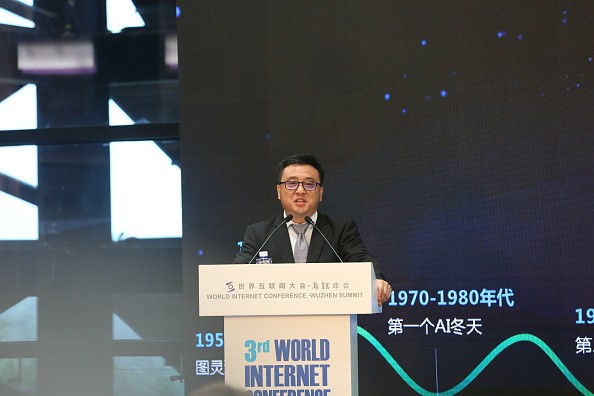Chinese Internet giant Baidu Inc has launched on Wednesday, Nov. 30, an artificial intelligence (AI) platform called "Tianzhi," aimed at expanding cloud use among commercial users, China Daily reported.
Powered by Baidu's cloud computing technologies, the platform has three sub-layers that include perception, deep learning and machine learning.
The platform was launching during the "ABC Summit" held in Beijing on Nov. 30. The summit, the first of its kind held by the company, focused on the promotion and acceptance on AI, big data and cloud computing technologies.
"Cloud computing was recognized as an infrastructure investment for corporate users several years ago, but the market demand for cloud-driven AI platform has seen rapid growth since this year," Zhang Yaqin, president of Baidu, said.
Through its cloud computing platform, the company will be able to present its AI technology to the market, Zhang added.
Earlier this year, the company also unveiled Baidu Brain, an AI system that uses technology that recognizes and processes speech, words and images, and help create user profiles based on big data analysis.
Other technologies were also implemented by Baidu to develop intelligent mapping, translation, advertising services and self-driving operating systems.
As the core engine of Baidu's cloud technology, the Baidu Brain provides the "neurons" and "training data" to the "brain," according to Zhang.
More than 30,000 enterprises have currently established cooperation with Baidu, using the company's cloud services in areas that include medical care, education, logistics, marketing and finance.
The company also introduced to its users more than 80 products that specialize in providing cloud services, Liu Yang, joint general manager of Baidu's cloud business arm, said.
A smart transportation ecological alliance was also launched by Baidu's cloud division in collaboration with transport regulators and business partners, with the aim to implement technology innovation in the industry.
The autonomous car sector also benefits from Baidu's cloud technology, as it presented two core technologies to support global leading autonomous pioneers, such as BMW and Audi, but also domestic latecomers during the development process.
One of the technologies is deep learning, which provides vehicles image sensing and recognition while the other is high-precision maps, Gu Weihao, general manager of Baidu Intelligent Vehicle, known as the L3 Division of the internet company, said.
Aside from Baidu, Alibaba's cloud is also intensifying its efforts in cloud technology. To compete with other global players such as Amazon and Microsoft, Alibaba set up four new data centers across the world. The data centers are located in Tokyo, Germany, Dubai and Sydney, bringing to eight the total number of Aliyun data centers outside China.
The global public cloud market is predicted to reach $146 billion in 2017, up from $87 billion in 2015, according to American technology and market research company Forrester.
"Seventy-seven percent of Chinese enterprise infrastructure decision-makers said that using a public cloud platform is a high or critical priority over the next 12 months, versus 58 percent of their global peers," the company said.
The public cloud market in China is expected to increase from $1.8 billion in 2015 to $3.8 billion by 2020, the company added.


